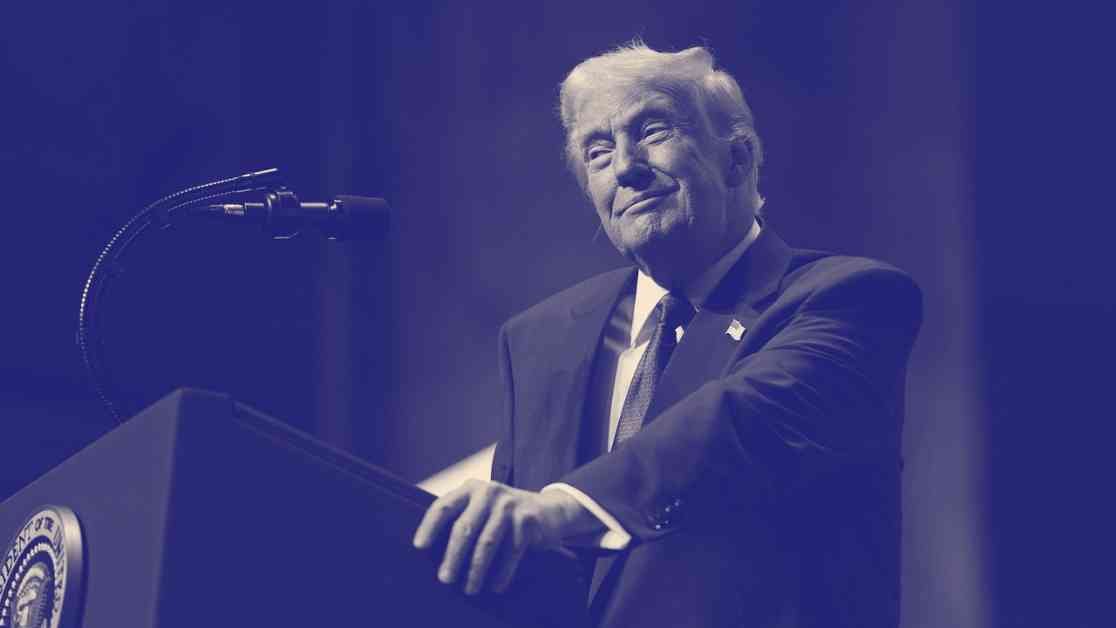The recent actions of the Trump Administration have sent shockwaves through European-American relations, potentially altering the global order that has been in place for over eighty years. At a recent meeting in Munich, Vice-President J.D. Vance delivered a surprising message to European diplomats, shifting the focus of threat from Vladimir Putin to immigration and far-right political parties. Shortly after, Secretary of State Marco Rubio and American negotiators engaged in discussions with Russian representatives in Saudi Arabia regarding the conflict in Ukraine, excluding Ukrainian representation. The ensuing chaos and uncertainty in Europe has fueled a sense of panic and confusion, prompting a reevaluation of the Atlantic alliance’s stability.
To gain insight into the implications of these developments, I had a conversation with Ivan Krastev, an expert on European politics and a fellow at the Institute for Human Sciences in Vienna. Our discussion shed light on the potential impact of Trump’s actions on the European political landscape, the unpreparedness of the European mainstream for such a shift, and the ideological motives behind the U.S.’s global strategy. Krastev likened the current situation to a significant historical turning point for Europe, drawing parallels to key events like the invasion of Ukraine in 2022 and the fall of the Berlin Wall in 1989.
European Response to the Upheaval
European leaders’ response to the evolving situation has been met with predictability rather than conviction, highlighted by a lackluster meeting in Paris convened by French President Emmanuel Macron. The attempt to showcase solidarity and strength instead underscored Europe’s vulnerability and dependence on external security guarantees. As Europe grapples with the ramifications of a potential disintegration of the Atlantic alliance, political factions are realigning, with the emergence of a Trumpian right and a defiant European mainstream seeking to assert its autonomy.
Krastev emphasized the challenges facing the European far right in navigating the shifting political landscape, particularly concerning the conflict in Ukraine. While Trump’s peace efforts garner support from some factions, the prospect of a surge in Ukrainian immigrants entering Europe poses a dilemma for far-right parties staunchly opposed to immigration. This internal struggle within the far-right movement reflects a broader trend of political polarization and ideological clashes reshaping European politics.
Macron’s Vision and European Unity
The discussion also delved into the role of European leaders like Macron in advocating for greater European autonomy in defense and foreign policy. Despite Macron’s prescient calls for European self-reliance, his political limitations have hindered the realization of a cohesive strategy. The recent offer by British Prime Minister Keir Starmer to contribute troops to a Ukrainian peace deal signals a potential realignment of British interests with Europe, bolstering regional security efforts.
Krastev underscored the nuanced dynamics at play within Europe, where historical divisions and societal cleavages overshadow external threats in shaping political unity. The fragmentation within and among European states poses a formidable challenge to cohesive responses to external pressures, as evidenced by diverging stances on issues like Russia, China, and the transatlantic relationship. The complex interplay of geopolitical interests, national identities, and historical grievances complicates efforts to forge a unified European stance in the face of global upheaval.
In conclusion, the evolving landscape of European-American relations underscores the transformative impact of recent events on the geopolitical order. The unraveling of longstanding alliances, the rise of populist nationalism, and the reconfiguration of power dynamics are reshaping the contours of European politics. As Europe navigates a period of uncertainty and redefinition, the imperative for strategic foresight, cultural adaptation, and political cohesion becomes paramount in safeguarding the continent’s interests and values in a rapidly changing world.












